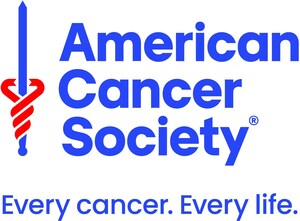
ATLANTA, Nov. 17, 2025 /PRNewswire/ -- For individuals diagnosed with cancer, participation in a clinical trial offers the opportunity to explore new treatment options; however, for many, finding and navigating the right clinical trial can be challenging due to various barriers in the process. To address these issues, the American Cancer Society has announced the national expansion of ACS ACTS (Access to Clinical Trials and Support), a comprehensive clinical trial matching service built to increase equitable access to clinical trials. The program offers trained American Cancer Society cancer information specialists to help caregivers, people with cancer, and health care providers learn how clinical trials may fit into a treatment journey, explore personalized clinical trial options tailored to specific needs, and easily access American Cancer Society services and resources to overcome participation barriers.
Caregivers and individuals of all ages with any type of cancer in all 50 states and U.S. based territories are eligible for the service. To participate, a provider, caregiver, or patient calls or submits an intake form on the ACS ACTS webpage to receive general clinical trial education, health-related social needs screening, and the opportunity to explore clinical trial matching. If the decision is made to move forward with matching, collaborating biotechnology company Massive Bio provides a personalized artificial intelligence (AI) matched list of eligible cancer clinical trials sourced through clinicaltrials.gov to patients. Throughout the process, ACS ACTS offers resources and free American Cancer Society services, such as Road to Recovery and Hope Lodge communities, to address some of the barriers patients face in participating in clinical trials.
"When diagnosed with cancer, deciding if a clinical trial is right for you can be overwhelming," said Dr. Arif Kamal, chief patient officer at the American Cancer Society. "The support ACS ACTS provides empowers people with the tools and resources to find the best treatment options available, while continuing the American Cancer Society's focus on removing barriers to care."
Cancer clinical trials are studies of new medicines, procedures, and other treatments that may improve cancer outcomes. They help scientists and doctors determine if a new treatment is safe and effective before it is approved for use in the United States to treat cancer. For the best data, participants in these trials should reflect the various backgrounds impacted by cancer. Making these trials more accessible by removing geographic, financial, logistical, and cultural barriers improves cancer outcomes at both the individual and population levels.
Since launching its pilot in the Northeast on February 24, 2025, ACS ACTS has offered over 900 personalized clinical trial opportunities and engaged with more than 1,000 individuals, who have identified over 1,700 health-related social needs. For more information, visit cancer.org/ACTS.
Additional ACS Resources:
- American Cancer Society Patient Programs and Services
- Special ACS Report: Lesser-Known Lobular Breast Cancer on the Rise in U.S. Women
- New ACS Study Finds Cancer Survival Rates Lower in Rural Areas, Aligned With Disparities in Receipt of Care
- New ACS Study Shows Cancer Mortality Rates Among Black People Declining, but Remain Higher Than Other Racial and Ethnic Groups
- The American Cancer Society Expands Professional Education for Oncology Navigation in Clinical Trials
About The American Cancer Society
The American Cancer Society is a leading cancer-fighting organization with a vision to end cancer as we know it, for everyone. For more than 110 years, we have been improving the lives of people with cancer and their families as the only organization combating cancer through advocacy, research, and patient support. We are committed to ensuring everyone has an opportunity to prevent, detect, treat, and survive cancer. To learn more, visit cancer.org or call our 24/7 helpline at 1-800-227-2345. Connect with us on Facebook,X, and Instagram.
SOURCE American Cancer Society







Share this article